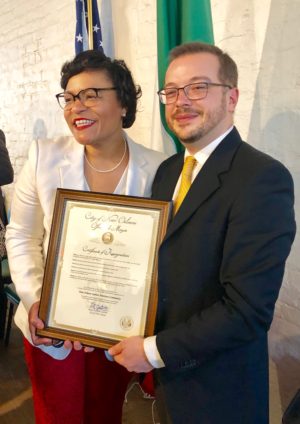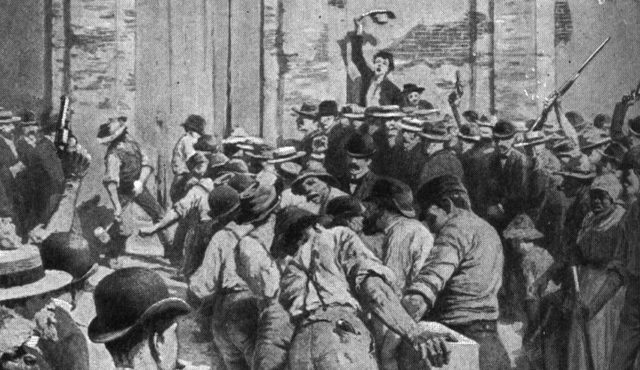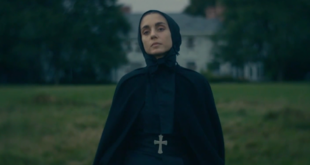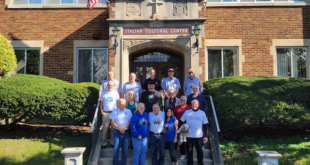On April 12, 2019, New Orleans Mayor Latoya Cantrell officially apologized to the Italian-American community for the part her city played in the horrific lynching of 11 Italians more than a century earlier. In so doing, she brought some measure of closure to one of the most horrific abuses that our community has endured.
 The apology has its roots in the emancipation of slaves in the South after the Civil War. At the time, New Orleans found itself in need of cheap labor that ended up being filled by immigrants from Italy, particularly Sicily. They came in such great numbers that the city’s famous French Quarter came to be know as Little Palermo. As much as the antebellum whites who controlled the city enjoyed the benefits of the hard-working new labor force, they resented their success and distrusted their ways. Their custom of sending money back home to family in Italy, rather than investing it in America, struck the locals as unpatriotic. And their willingness to mingle with African Americans further enflamed the white establishment’s dislike. The newspapers went out of their way to broadcast illegal activity among the Italians, making them synonymous with the Black Hand. This cauldron of stereotyping, discrimination, distrust, resentment and hatred eventually overflowed.
The apology has its roots in the emancipation of slaves in the South after the Civil War. At the time, New Orleans found itself in need of cheap labor that ended up being filled by immigrants from Italy, particularly Sicily. They came in such great numbers that the city’s famous French Quarter came to be know as Little Palermo. As much as the antebellum whites who controlled the city enjoyed the benefits of the hard-working new labor force, they resented their success and distrusted their ways. Their custom of sending money back home to family in Italy, rather than investing it in America, struck the locals as unpatriotic. And their willingness to mingle with African Americans further enflamed the white establishment’s dislike. The newspapers went out of their way to broadcast illegal activity among the Italians, making them synonymous with the Black Hand. This cauldron of stereotyping, discrimination, distrust, resentment and hatred eventually overflowed.
On Oct. 15, 1890, New Orleans Police Chief David Hennessy was assassinated. It was reported that he uttered these words prior to his death: “The Dagoes got me!” A massive dragnet followed during which hundreds of Italians were arrested and detained. Eventually, nine were tried and found not guilty. Enfuriated by the verdict, local whites responded in force to a newspaper ad the following day that invited them to attend a mass meeting and to “Come Prepared for Action”! On March 14, 1891, a mob of 8,000, enflamed by longstanding anti-Italian sentiment, stormed the prison in which the Italians, who were tried and found not guilty, were still being held. Nine Italians were brutally shot and beaten beyond recognition and another two hung outside from a nearby lamppost and a tree, with their dead swaying bodies serving as target practice for those who wished to discharge their firearms. The murder of these 11 innocents stands as the worst lynching in our nation’s history.
Though none of the lynchers were found guilty, with some never even being brought to trial, mainstream New Orleans rejoiced, proclaiming that the rule of law had been restored. One city newspaper even exalted, “Chief Hennessey Avenged.” To this day, those responsible for Chief Hennessey’s death have never been identified. For decades afterward, mainstream whites would goad their Sicilian-American neighbors by asking them “Who killa da chief?”
According to Andre DiMino, executive board member and spokesperson of the Italian One Voice Coalition, the city’s recent apology serves as a crucial vindication. “It’s a monumental event for Italian Americans and brings to light a quiet and relatively little-known part of our history,” he notes. Now, 128 years later, New Orleans has finally taken responsibility for its past misdeeds. Though an apology isn’t the same as justice, it does blaze a path forward for our community.
As Italian Americans today, what are we to make of this part of our history? What if any responsibility do we have to ourselves, our families and our past? We as a people still suffer from stereotyping and defamation. Society continues to portray us as buffoons, bimbos, goombas and gangsters. These perceptions and stereotypes should not be tolerated. At the very least, we should not tolerate them from ourselves. These are not the roles and identities our forefathers sought for us. It is not who we are. Today, walls are being built between people, whereas our ancestors sought to create bridges. For the love of those who came before us, we should remember their struggles and continue to fight for their dreams.
The above appears in the July 2019 issue of the print version of Fra Noi. Our gorgeous, monthly magazine contains a veritable feast of news and views, profiles and features, entertainment and culture. To subscribe, click here.
 Fra Noi Embrace Your Inner Italian
Fra Noi Embrace Your Inner Italian







